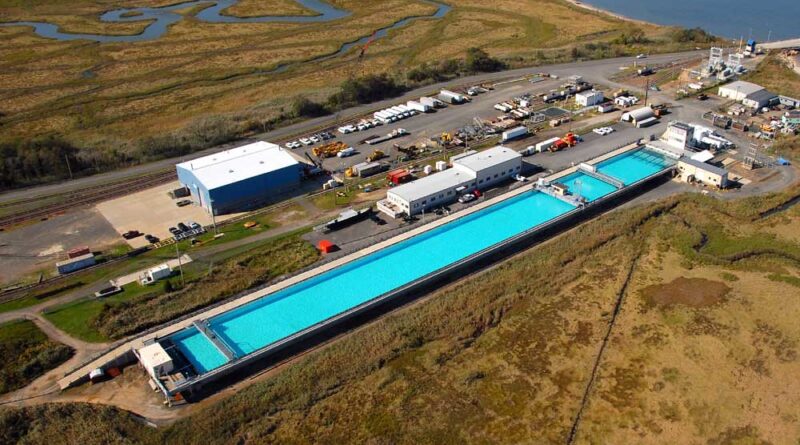How to Get Real Estate Investment Permits: A Step-by-Step Checklist
Are you interested in investing in real estate? While this can be a great way to build wealth and achieve financial freedom, it can also be a complex and challenging process. One of the most important steps in real estate investment is obtaining the necessary permits. These permits are essential to ensure that you are operating within the law and that your investment is protected. Failure to obtain the necessary permits can result in fines, legal issues, and even the demolition of the property.
But don’t worry, we’re here to help! In this article, we’ll provide you with a comprehensive step-by-step checklist to help you obtain real estate investment permits. Whether you’re a first-time investor or an experienced pro, this guide will provide you with the information you need to navigate the complex world of real estate investment permits.
Introduction
Before you embark on your real estate investment journey, it is important to understand the requirements for obtaining permits. Real estate permits are issued by the government to ensure that the construction, renovation, or operation of a property meets specific standards. These permits are required to ensure that the investment is legal, safe, and compliant with local laws and regulations. Failure to obtain the necessary permits can result in fines, legal issues, and even the demolition of the property. Therefore, it is essential to understand the process of obtaining real estate investment permits.
Benefits of Obtaining Real Estate Investment Permits
Obtaining real estate investment permits has many benefits, including:
- Ensuring that your investment is legal
- Protecting your investment from legal issues
- Providing access to resources and assistance from government agencies
- Operating within the law and avoiding penalties and fines
Overview of the Checklist
The following checklist will guide you through the process of obtaining real estate investment permits:
- Research the permit requirements in your area
- Prepare the necessary documents
- Submit your application
- Attend a hearing or meeting
- Receive your permit
Detailed Steps for Obtaining Real Estate Investment Permits
1. Research the permit requirements in your area
The first step to obtaining real estate investment permits is to research the permit requirements in your area. Each state and local government has its own rules and regulations regarding permits, so it is important to do your research to ensure that you are meeting all the requirements.
You can start by visiting your local government’s website or contacting the planning and development department to obtain a list of permits that are required for real estate investment in your location. The most common types of permits required for real estate investment are:
- Building Permits
- A building permit is required for any construction or renovation projects that involve structural changes to a building. This permit ensures that the building is safe and meets the local building codes. Building permits are typically issued by the local government.
- Zoning Permits
- A zoning permit is required to ensure that your real estate investment is in compliance with local zoning laws. This permit may be required for certain types of buildings or businesses, or for construction projects in certain areas. Zoning permits are typically issued by the local government or the zoning board.
- Environmental Permits
- Environmental permits are required for any real estate investment projects that may impact the environment. This may include permits for projects that involve excavation, water use, or other activities that could impact the environment. Environmental permits are typically issued by state or federal agencies.
- Business Licenses
- A business license is required if you plan to operate a business on the property. This license ensures that you are in compliance with local laws and regulations for operating a business. Business licenses are typically issued by the local government or the state.
It is important to note that each permit has its own set of requirements and fees, so it is important to research each permit individually. Additionally, some permits may require additional inspections or approvals, which can add time and cost to the permit application process.
2. Prepare the necessary documents
Once you have determined what types of permits are required for your real estate investment, you will need to prepare the necessary documents. Each permit will have its own specific requirements, so it is important to carefully review the permit application instructions and checklist.
The most common documents required for real estate investment permits include:
- Permit applications
- Construction plans or blueprints
- Environmental impact reports
- Proof of insurance
- Business licenses or other permits
- Other documentation as required
It is important to ensure that all of the documents are complete, accurate, and meet the specific requirements for the permit application. Incomplete or inaccurate documents can delay the permit application process and may result in the application being denied.

3. Submit your application
Once you have prepared the necessary documents, you will need to submit your application to the appropriate government agency or department. This may involve filling out an online form or visiting the office in person to submit your application and supporting documentation.
It is important to note that some permit applications may require a review fee, which can vary depending on the permit and location. Be sure to include any required fees with your permit application to avoid any delays in the application process.
4. Attend a hearing or meeting
After you have submitted your application, you may be required to attend a hearing or meeting to discuss your project and answer any questions that the agency may have. This is an opportunity for you to present your plans and address any concerns that the agency may have.
During the hearing or meeting, you may be asked to provide additional information or clarification regarding your real estate investment plans. It is important to be prepared and have all necessary documentation and information ready to present to the agency.
5. Receive your permit
If your application is approved, you will receive your permit. This permit will outline the specific requirements and conditions for your real estate investment, including any restrictions or limitations.
It is important to review the permit carefully to ensure that you understand all of the requirements and conditions. Failure to comply with the permit conditions can result in fines, legal issues, and even the revocation of the permit.
Examples of Real Estate Investment Permit Use
Real estate investment permits can be used for a variety of purposes, including:
- Developing new commercial or residential properties
- Renovating existing buildings
- Constructing new infrastructure, such as roads or bridges
- Starting a new business on the property
- Expanding an existing business on the property
Here are some examples of how obtaining real estate investment permits can be beneficial:
Developing a new commercial or residential property
Obtaining the necessary permits for a new construction project ensures that the building is safe and meets local building codes. This protects the investment and ensures that the property is a safe and comfortable place for tenants or owners to live or work.
Renovating an existing building
Renovation projects often involve structural changes or upgrades to the building. Obtaining the necessary permits ensures that the renovations are safe and meet local building codes. This protects the investment and ensures that the property is in compliance with all local laws and regulations.
Constructing new infrastructure
Infrastructure projects, such as roads or bridges, require permits to ensure that they are safe and will not negatively impact the environment or the community. Obtaining the necessary permits protects the investment and ensures that the infrastructure project is legal and compliant with all local laws and regulations.
Starting a new business on the property
Starting a new business on a property may require a business license or other permits. Obtaining these permits ensures that the business is legal and compliant with all local laws and regulations. This protects the investment and ensures that the business can operate without fear of legal issues.
Expanding an existing business on the property
Expanding an existing business may require permits for construction or other activities. Obtaining the necessary permits ensures that the expansion is legal and compliant with all local laws and regulations. This protects the investment and ensures that the business can grow without fear of legal issues.
Final Words
Obtaining real estate investment permits can be a complex process, but it is essential to protect your investment and ensure that it is legal and compliant with local laws and regulations. By following the step-by-step checklist outlined in this article, you can navigate the complex permit application process and obtain the necessary permits for your real estate investment.
Remember, obtaining real estate investment permits has many benefits, including protecting your investment from legal issues, providing access to resources and assistance from government agencies, and operating within the law to avoid penalties and fines.
If you’re considering a real estate investment, don’t let a lack of permits stand in the way of your success. Take the time to research the permit requirements in your area, prepare the necessary documents, and submit your application. And if you ever have any questions or concerns, don’t hesitate to reach out to the planning and development department or consult with a real estate professional.
